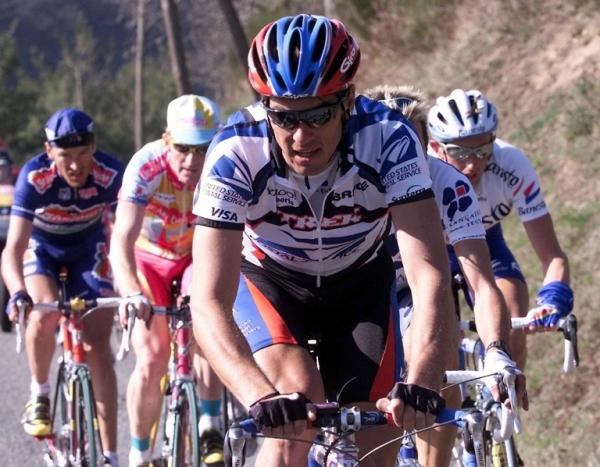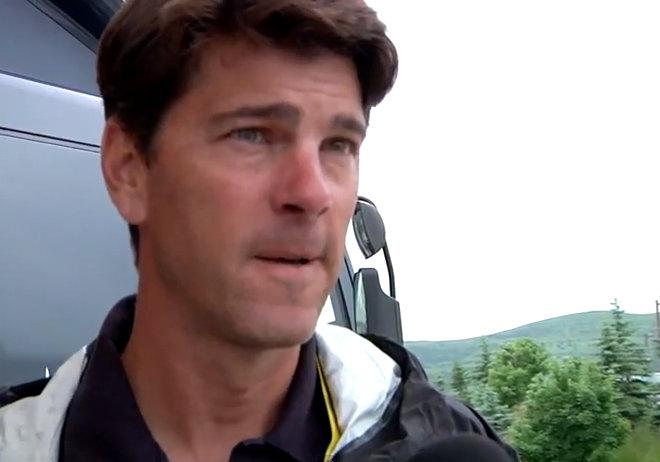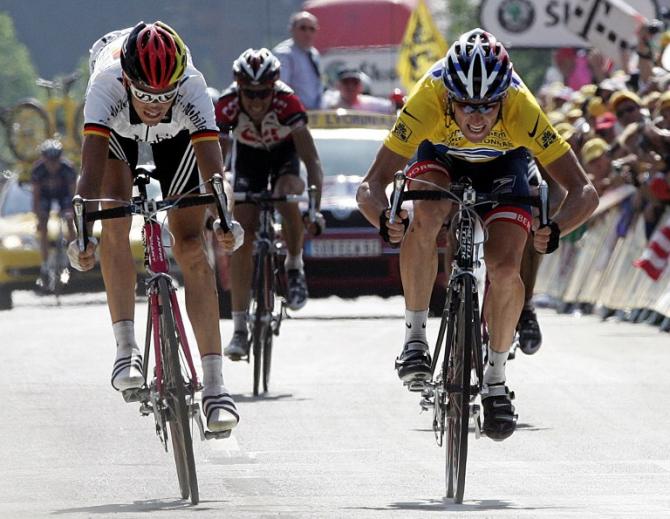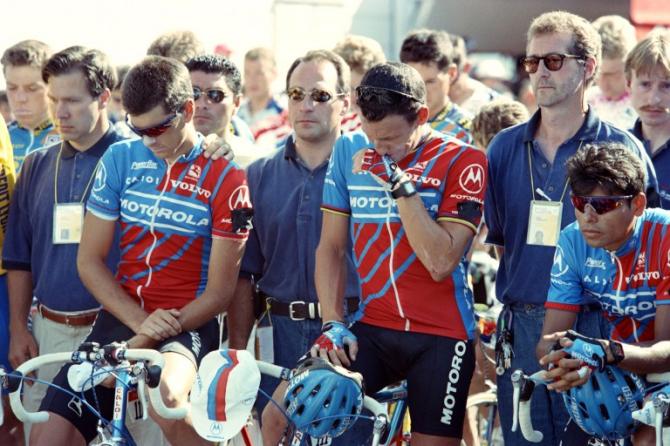Frankie Andreu: Did USADA's Reasoned Decision help cycling?
Opinion: Former Armstrong teammate on the day cycling changed forever




I started racing bikes when I was twelve years old. I went to many places, raced all over Europe, and rode thousands upon thousands of miles in races. There are a lot of days of racing that I don’t remember; oftentimes, someone else will have a better recollection of that race than I would. One important day in cycling I will forever remember is the day Lance Armstrong announced that he wouldn’t fight USADA . I was walking into a hotel on the night of August 24, 2012 in Colorado where I was covering the USA Pro Cycling Challenge, when my wife called to tell me the news. I remember this moment clearly because it not only affected me greatly but I knew it would affect the sport’s past and future.
This October 10 will be two years from when the USADA Reasoned Decision came out, thereby stripping Armstrong of his titles. The investigation shed a bright light on what went on in the past. It brought forward the serious problems in the sport instead of keeping them swept under the rug. After years of investigations, grand jury testimonies, subpoenas, as well as lawsuits, the question remains: did the sport not just hear the message but heed it? Has the sport of cycling cleaned up its act?
After so many years of being deceived and lied to it would be naïve to think that everyone is racing clean. Just look at the UCI reports from this October which show that 21 athletes are awaiting rulings on suspensions. The athletes in question aren't just from one country, but rather from many different countries and from different disciplines. Ultimately, it’s the riders who will determine if we can trust them.
The sport of cycling is no different than any other sport or business in that where there is big money to be made there will always be someone trying to buck the system. In my opinion, I’m sure that some riders have escaped sanctions.
The unnamed and unsanctioned
What immediately comes to mind after two years are some of the cyclists whose names are redacted from the USADA report. Whether or not someone should be investigated depends on the information regarding that person and whether or not that information can be substantiated. As time passes, many of the people mentioned in the Reasoned Decision might retire from racing but still be involved in the sport. They might also be completely out of the sport. It doesn’t matter. We can't have closure until all the lawsuits are adjudicated. Even then, this is a teachable moment for all of sport and life as well. We don't want to dwell on the past but we must not forget it because of the lesson it teaches. The USADA report made a big difference - a better difference not just for cycling but for all of sport.
The change
The latest race content, interviews, features, reviews and expert buying guides, direct to your inbox!
I believe the USADA decision did have a direct impact on the leadership of the UCI. With McQuaid's connection to the past there was an outcry for change. As the President of the UCI, McQuaid should have known what was happening and should have done something about it. Instead, he fought the different agencies in order to keep the power at the UCI. Had he not known what was happening during parts of his leadership, then he was just as much at fault. Overall, a change needed to be made and it was a correct decision to start at the top by electing Brian Cookson. The UCI needs to stay vigilant and be aggressive in its anti-doping efforts, not just with what's happening currently but also as to what has taken place in the past.
With the sport changing for the better, the young athletes as well as the older athletes will be able to compete fairly. No longer will athletes have to line up knowing they are starting a mile behind the others despite standing on the start line together. We have seen younger cyclists competing at the top level and I believe a lot of their success is due to the sport being cleaner.
Racing has changed (and it’s not because of the elimination of race radios) with riders judging their efforts and waiting longer to make their winning moves. They don’t attack at the bottom of a climb and never look back because they know they rode everyone off their wheel. Teamwork is still essential but you don’t have an entire team riding on the front over a cat 1 mountain when there are only 30 guys left in the group. Climbers climb and the sprinters sprint, not the other way around.
We still see the speed and power needed in races but sometimes we see a super human effort that raises questions. Is it right to question that effort? Absolutely. We can’t be blind to what happened in the past or forget what occurred. This doesn’t mean when we see an incredible ride we should automatically assume someone’s cheating. Cyclists have good days and bad days; they train hard to have those good days. It’s enjoyable to watch someone have a great day on the bike. It’s when they surpass physiological parameters which don’t make sense that questions should be asked.
The biggest question from reading the USADA report which detailed Armstrong and the US Postal Service is how the team got away with it for so many years. With all the testing that was involved, a spotlight on Armstrong for many years as well as the numerous accusations, how it was all ignored? We still don’t have an answer for that. What we do have an answer to, which the USADA report provided, is that a cyclist's future is predicated on their present decisions.
They are decisions that are directed by the watchful eyes of riders to police each other, the UCI, managers, directors, fans, and journalists. Now, everyone plays a part in making sure that the sport of cycling continues on the path of being a clean sport, one that people can believe in.